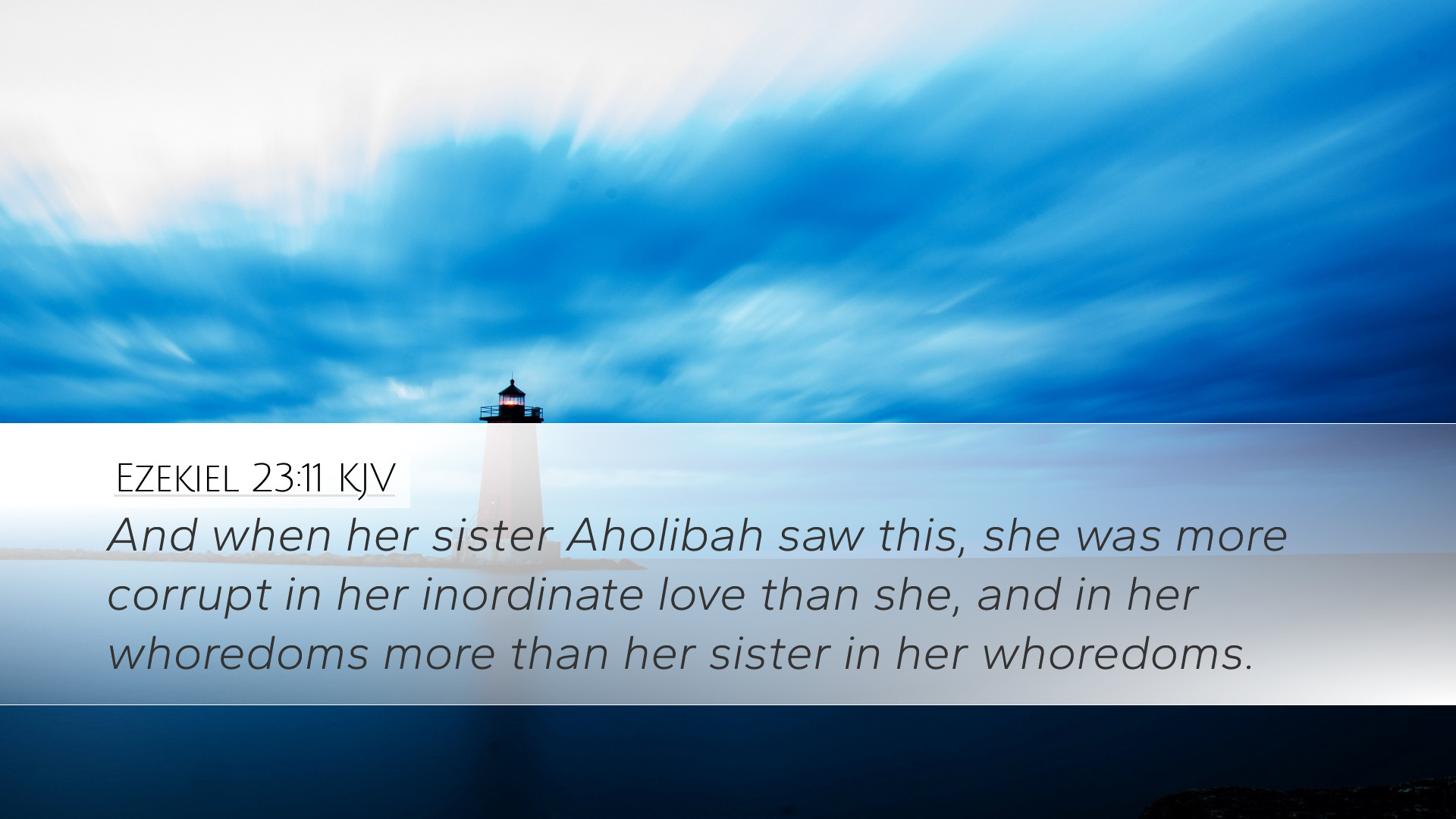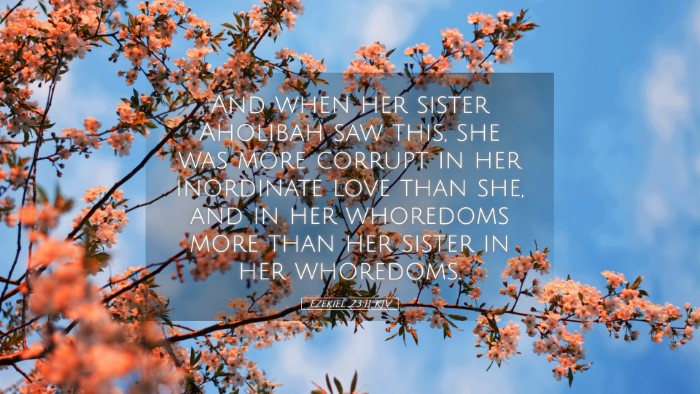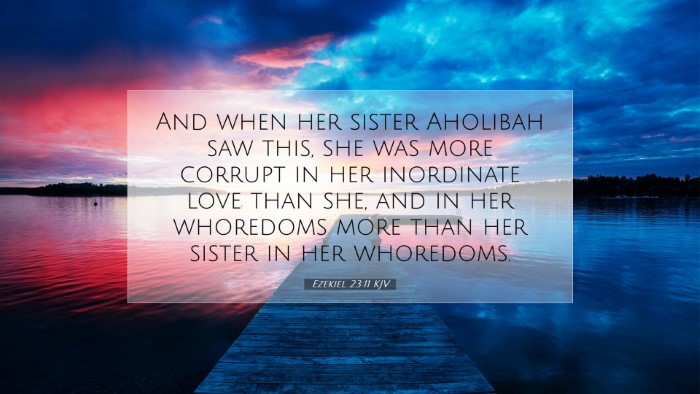Ezekiel 23:11 Commentary
Verse: "And when her sister Aholibah saw this, she was more corrupt in her inordinate love than she, and in her whoredoms more than her sister in her whoredoms."
Introduction
The passage of Ezekiel 23:11 forms part of a larger allegorical narrative in which the prophet Ezekiel presents two sisters, Oholah and Oholibah, representing Samaria and Jerusalem respectively. The language used is intensely graphic, portraying the spiritual infidelity of Israel through the metaphor of unfaithfulness in marriage.
Contextual Background
The Book of Ezekiel is a vital prophetic work that delivers God's messages of judgment and restoration to His people during the Babylonian exile. Chapter 23 specifically addresses the actions and attitudes of the kingdoms of Israel and Judah, highlighting their unfaithfulness—often in the face of God's covenant love.
Verse Breakdown
- Aholibah's Response: The term "Aholibah" means "my tent is in her." This symbolizes the presence of God among His people, and her actions signify how Jerusalem, representing the southern kingdom, compromised its relationship with God.
- Corruption and Inordinate Love: Ezekiel highlights Aholibah's greater corruption as indicative of Judah's more profound depravity compared to Israel. This bears implications on the nature of sin, illustrating that knowledge of God's covenant should lead to fidelity, but instead, it resulted in greater rebellion.
- Increased Whoredoms: This phrase underscores the intensity of Judah's idolatry and infidelity. It reflects the idea that knowledge or proximity to God does not guarantee faithfulness, but rather can lead to a more significant judgment when such privilege is abused.
Theological Insights
Scholars and theologians have explored several themes emanating from this verse:
- The Nature of Sin: The comparison between Aholah and Aholibah serves as a reminder of the progressive nature of sin. Matthew Henry notes that sin can escalate, leading individuals or nations deeper into rebellion against God.
- Covenant Privilege and Responsibility: Albert Barnes emphasizes that with God's covenantal blessings comes the necessity of loyalty. Failure to maintain one's commitment, as seen with Aholibah, intensifies guilt.
- God’s Judgment: Adam Clarke in his commentary highlights the inevitability of divine judgment for persistent sin. The moral lesson is clear: the rejection of God’s requirements leads not only to individual destruction but to national and communal calamity.
Practical Application
This passage not only serves as a historical account but also encourages believers today to reflect on their faithfulness to God:
- Self-Examination: Just as Aholibah's actions called for reflection, believers are urged to evaluate their relationship with God, considering whether they engage in spiritual infidelity.
- Understanding Consequences: The stark warnings within this text serve as a call to recognize the consequences of straying from God’s path and serves to reinforce the centrality of faithfulness in a believer's life.
- Hope of Restoration: While the text conveys strong messages of judgment, it also lays the groundwork for the hope of restoration, as later passages in Ezekiel illustrate God’s readiness to forgive and restore His people who repent.
Conclusion
Ezekiel 23:11 is a powerful reminder of the grave consequences of spiritual unfaithfulness and highlights the need for genuine commitment to God. Through the lens of its historical and metaphorical context, it provides essential insights for pastors, students, and scholars engaged in understanding the complexities of covenantal faithfulness. Emilia Remington reflects that "Ezekiel's vivid symbolism challenges our understanding of loyalty to God," prompting each reader to consider their fidelity in a contemporary context.


